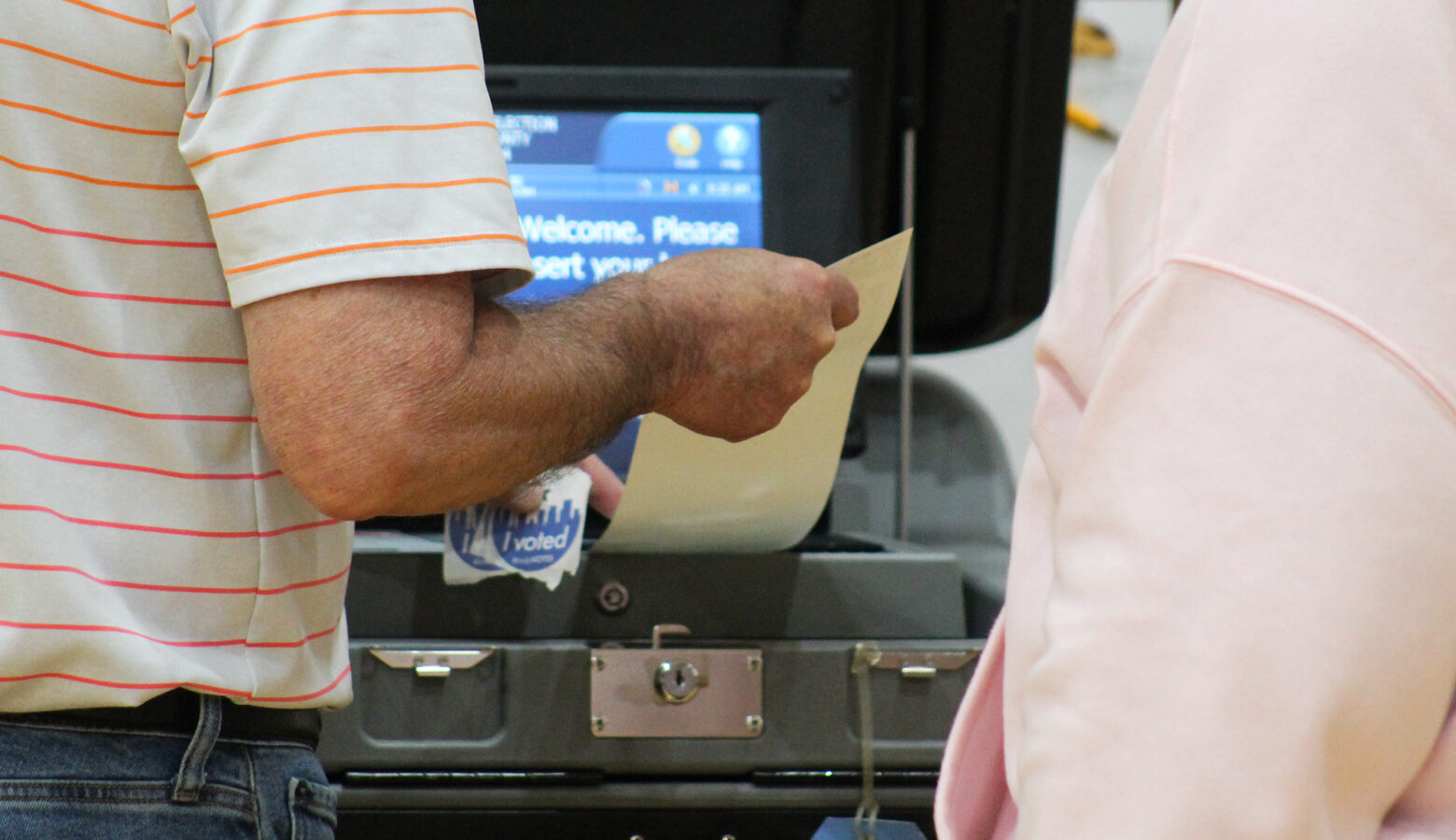How do votes get counted? County clerks say Indiana elections are secure

Unfounded claims about election fraud have made some voters concerned about what happens after the polls close. County clerks throughout the state say Indiana’s elections are secure.
Indiana uses two types of voting machines: optical scan ballot cards, where voters mark paper ballots; and direct record electronic voting systems, where voters use touchscreens, push buttons or dials to mark their selections.
No matter which type of voting machine is used, the process of counting them is largely the same.
Dubois County Clerk Amy Kippenbrock and Ripley County Clerk Liz Baumgartner said the basic process is fairly simple: the total number of ballots cast are recorded throughout Election Day – by either tally cards or drives generated by the different types of voting machines.
Baumgartner said that record makes it so it’s not possible to submit fewer ballots than the number that were scanned.
“Every ballot has to be accounted for,” she said. “It’s not like we can scan in 50,000 ballots but show that we’ve only passed 10,000 out.”
That includes early voting and absentee ballots, which aren’t counted until Election Day, typically by election boards before the polls close.
And an election inspector and a judge of the opposite party is who collects those drives.
Kippenbrock said each voting machine is tested before Election Day. Voters are able to review their choices and make changes if something is wrong before they submit their ballot.
“There’s layers of protection in every aspect of the process, and we work really hard here in Dubois County to make sure that everybody knows their part and how to do their job,” Kipppenbrock said.
Part of those protections include voter verifiable paper audit trails, or VVPAT. She said those receipts for voters allow them to double-check the machine recording.
READ MORE: What do I need on Election Day? The general election is Nov. 5
Join the conversation and sign up for the Indiana Two-Way. Text “Indiana” to 765-275-1120. Your comments and questions in response to our weekly text help us find the answers you need on statewide issues and the election, including our project Civically, Indiana.
While the machines may be slightly different, many safety measures like partnering bipartisan election workers and collecting paper ballots are common among many Indiana counties.
Kippenbrock said anyone with doubts about the election process should get more involved. She encouraged them to attend a voting machine test that ensures the machines are working properly. Those tests are required before each election.
“There’s lots of moving parts to an election,” she said. “ I think the more people understand, the more faith they can have faith in the process.”
Kippenbrock said, in her time as clerk, Dubois County has gone through recounts and each time they’ve been verified as “100 percent accurate.”
Kirsten is our education reporter. Contact her at kadair@wfyi.org or follow her on Twitter at @kirsten_adair.


